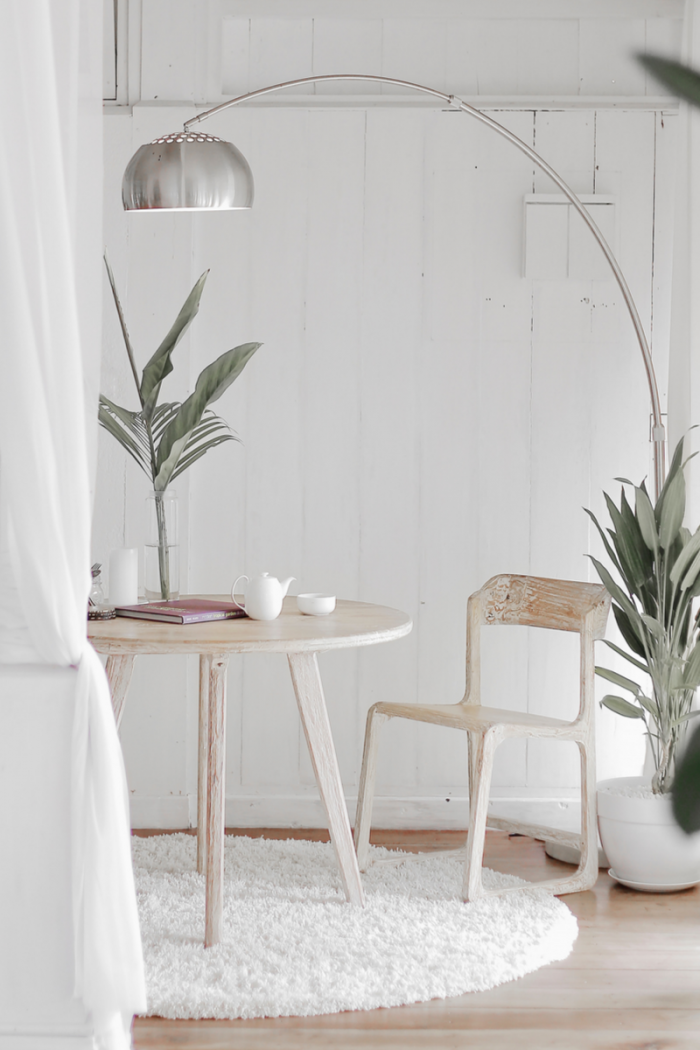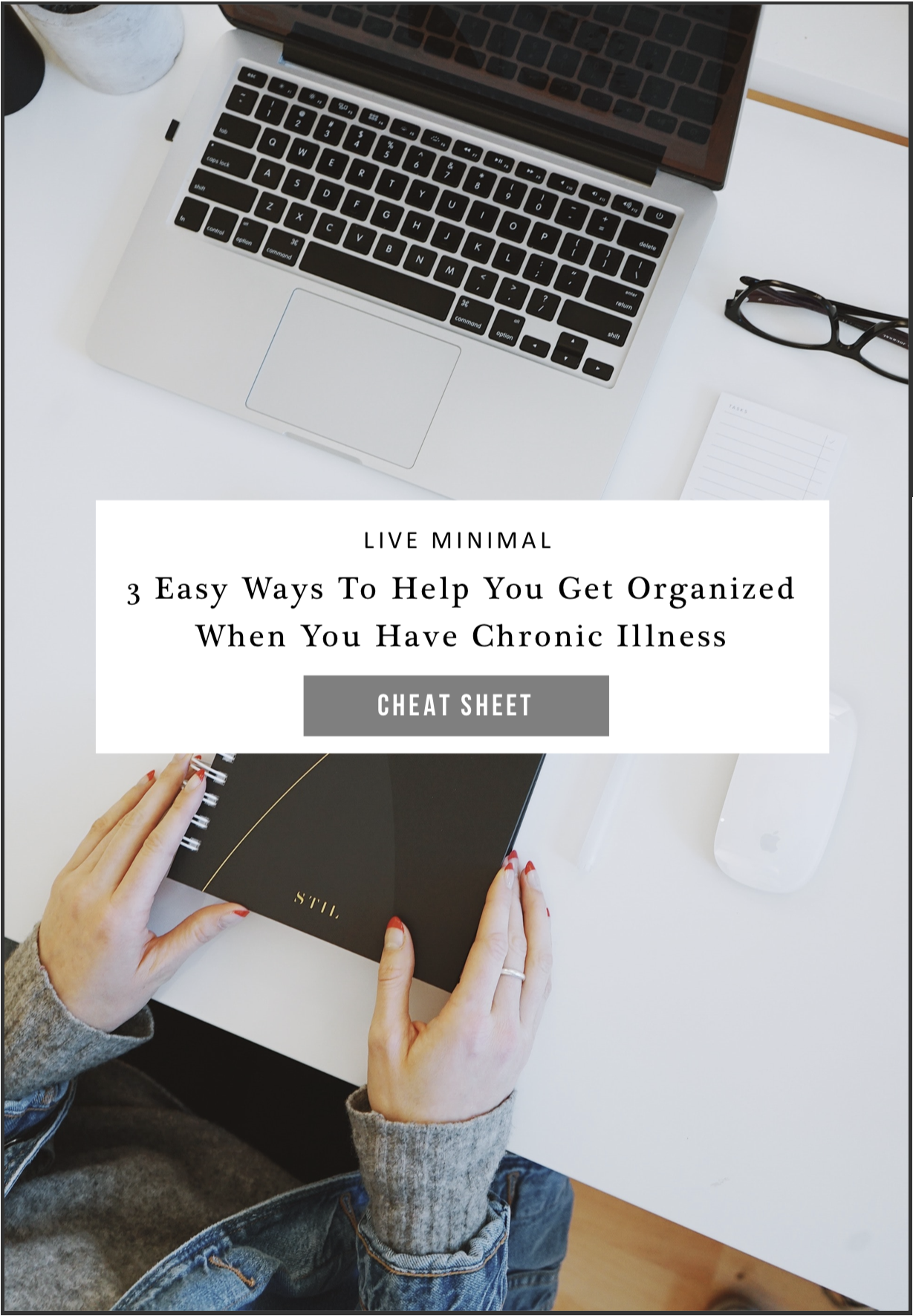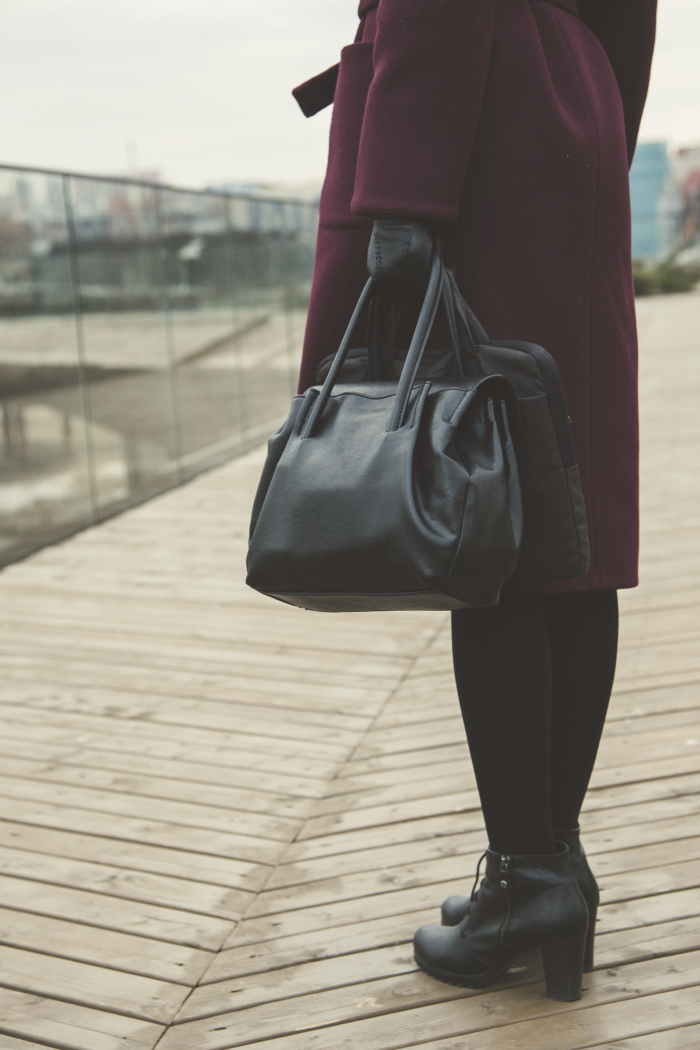If someone had told me four years ago that I would need to part with a few of my belongings to reduce my stress, I would have laughed. There was no way I could part with anything – everything was sentimental.
But year after year, we kept adding possessions into our home. Instead of feeling more completed because I had more things, my anxiety levels would rise when the amount of free space became smaller and smaller.
I’d come home from work or university and not know where to begin. On the days I couldn’t get out of bed, I was left staring at all the clutter and it was overwhelming! If you’ve ever lived in a small apartment with clutter, you’ve experienced the feeling of the walls closing in on you!
My husband and I knew that it couldn’t go on any longer. We were falling behind on our cleaning schedule and arguing about dealing with all of the mess. Slowly, we started working through our apartment and getting rid of anything unnecessary. My mind felt clearer, and my anxiety reduced.
If you have a chronic illness, I can’t recommend minimalism enough. Here are three reasons why you should consider it too:
1. Fewer things, less stress – especially if you live in a rental property.
I have a terrible tendency to hoard items that I think might be useful in future. For example, I have boxes and boxes filled with blank notebooks and empty folders. I love stationery. Do any of you have the same obsession? I hope I’m not the only one! I’ll pick up a notebook because I need to write something down. Then I’ll contemplate whether or not what I need to write down is worthy enough to waste this brand new notebook. There might be an occasion where I need to use this notebook for something more important, but if I write in it now, it’ll be ruined. I was SO stressed, that I never ended up using them. Yes. I’m that kind of hoarder!
One reason we’ve reduced the number of ‘things’ we have in our home is because of our living situation. My husband and I rent an apartment. There’s always a chance that the owner will decide to end our lease. If suddenly told to leave, what would happen if we only had a week or two, to pack up and move? The idea of reducing the number of belongings we had in case we had to move, made sense to us, and now we only keep the necessities.
2. Less daily cleaning and maintenance.
Fewer things means less cleaning and up-keep. Cleaning can be exhausting with chronic illness. If you’re in a flare – it’s nearly impossible. With fewer belongings, your household will require less maintenance. The amount of dust that was collecting on everything around my home was crazy. Now there is no excessive dusting and vacuuming around things. No more picking heavy items up or bending down to push something out of the way to get to something else. Cleaning time can be halved, just by minimising the number of belongings in your home.
3. Cluttered home, cluttered mind.
You may have heard that saying before! What makes it even worse is that we already have a cluttered mind. Those of you with chronic illness deal with daily brain fog. Clutter can exacerbate our anxiety levels, insomnia, and our inability to focus. In a cluttered home, I felt less productive and avoided any attempt to get started. I let it accumulate for so long that it became unbearable. Minimalism has helped me run a more organised household, giving me more time to focus on my health and chronic illness recovery.
Here are four easier starting points if you decide to declutter:
1. Paperwork
The first thing I started with when decluttering was paperwork. It. was. everywhere. On every desk in my house, in cupboards, on counters, behind bookshelves, even under the bed. Literally everywhere! It was impossible to file any of my medical records, test results and household documents. I went out and bought several large plastic storage containers and slowly went through the apartment. I placed every single paper into these boxes. This process did not take one day to complete. I didn’t sort them on the spot either – that would take too much time. With limited energy, I decided it was more important to get everything in one place, then sit down and go from there. No longer were papers littering our apartment.
If you are looking at starting with paperwork, I’d suggest collecting paperwork from one room at a time. Have a few boxes prepared to place all of your paperwork in. Don’t feel like you have to file these away on the same day – you can do this in a week/months time. There’s no rush! Don’t store your paperwork in plastic bags, just in case one is thrown out by accident!
2. Wardrobe
I felt like I was always doing laundry. I would clean and hang the washing out daily. We would pull something else out of the wardrobe, wear that and clean it too. The next day, when it was time to bring in the outside laundry, I was too exhausted to iron and fold them, so it would be thrown on a couch or in a basket to do another day. Every time I brought in new, clean clothes from outside, it would be thrown on to the same pile until it became a mountain. I would have anxiety watching that pile grow throughout the week. But there were still more clothes sitting in our wardrobe, so I never felt like I had to get on top of it…until it was too late and we had nothing else to wear.
I decided to simplify our lives by reducing the number of clothes we owned. After my chronic illness diagnosis, a lot of my clothes became too tight (thanks to stomach bloating and water retention!).
First, we went through and donated everything we had not worn in the last year. Then we separated our clothes seasonally — one pile for warm weather clothes and the other for colder weather. During Spring/Summer, we hang our warmer clothes in the wardrobe and vacuum seal our colder clothes. When Autumn/Winter arrives, they are swapped. Store vacuum sealed clothes at the top of your wardrobe.
Sort through your wardrobe at the end of each season and donate anything you don’t think you’ll wear again (I held on to a lot of clothes I had hoped to wear again but knew deep down, wouldn’t be comfortable in any more). That way, you will never have an overflowing wardrobe and keeping on top of laundry will be easier!
3. Bedroom counters.
If there’s one visible place I would start with, it’s countertops – in particular, bedroom counters. I spend a bit of time in bed or on the couch due to chronic pain. Having the bedside or coffee tables covered in paperwork and medication was smothering. Taking my medication was tricky because it was unorganised, and I wasn’t able to remember which one I had taken moments earlier. To clear the area up, place any papers you may have scattered across these counters into the plastic boxes. If keeping your medications/vitamins near your bed makes them easier to access, organise bottles in a drawer or fabric storage box so that they are not visible.
4. Get rid of broken belongings.
My husband shares the same hoarding tendencies as me. Except he likes to hold on to a lot of broken things with the hopes that he’ll have time to fix them. Nearly a decade later and they’re still sitting around the apartment or in the garage. It’s a work in progress, but I’ve convinced him to throw out a few of these items from our garage.
Keep in mind, decluttering and minimising everything takes time. Don’t get upset with yourself if you can only do one section per day, week or month. I would recommend starting on one area at a time. Declutter one wardrobe drawer, one table counter, or one section of a room. It can be tiring doing too much in one go. If you push yourself hard enough, it can result in a chronic illness flare. Minimalism should be making your life easier, not more stressful.
Have you already started decluttering your home? If so, I’d love to hear any tips or concerns in the comments below.
Interested in more organisation tips? Grab the free guide today! Click here for the ‘3 Easy Ways To Get Organised With Chronic Illness’ cheat sheet.





2 comments
Thank you for this post! I to believe minimalism is a great asset to chronic illness, I’m always stressed about cleaning up and the pain it causes, having too many tasks to do is so stressing and increases my pain.
I have begun decluttering my apartment about a month ago. I am time blind so I’m not really sure. I have a close friend who is a trained organizer helping me. It has been an emotional roller coaster. But it is worth ever tear and melt downs to have a safe and clean home. I’m really surprised that after some thing is gone l feel so good and calm, even though I was adamant that everything was staying. Falling was what got the ball rolling. It can be very scary to let go of what one considers ones life. But it really is not your life anymore when chronic illness comes to stay.